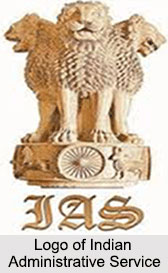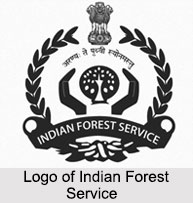 All India Services (AIS) refer to civil services in India. The All India Services Act of 1951 empowers the Government of India to make rules and regulation for the recruitment and conditions of service of the persons appointed to different ranks of All India Service, after discussion with state governments. Indian Administrative Service (IAS), Indian Police Service (IPS) and the Indian Forest Service (IFS) are the different All India Services. In case of IAS and IPS, recruitment of officers is conducted by the Union Public Service Commission (UPSC). They conduct a competitive civil service examination, annually. This examination is called the Civil Services Examination (CSE). It aims to protect civil services from political influences and avert the development of a patronage system. In case of IFS, recruitment depends on IFS Examination. Given below are different All India Services.
All India Services (AIS) refer to civil services in India. The All India Services Act of 1951 empowers the Government of India to make rules and regulation for the recruitment and conditions of service of the persons appointed to different ranks of All India Service, after discussion with state governments. Indian Administrative Service (IAS), Indian Police Service (IPS) and the Indian Forest Service (IFS) are the different All India Services. In case of IAS and IPS, recruitment of officers is conducted by the Union Public Service Commission (UPSC). They conduct a competitive civil service examination, annually. This examination is called the Civil Services Examination (CSE). It aims to protect civil services from political influences and avert the development of a patronage system. In case of IFS, recruitment depends on IFS Examination. Given below are different All India Services.
Indian Administrative Service
Indian Administrative Service is the leading managerial civil service of the Government of India. IAS officers hold key and strategic positions in the Union Government. Indian Administrative Service acts as the permanent bureaucracy in India and forms an indissoluble part of the executive branch of the Government of India. It provides continuity and neutrality to Indian administration. The creation, modification and interpretation of policy matters are conducted in an office under the direct supervision of the Administrative Officer, in discussion with the Minister.
 Indian Police Service
Indian Police Service
Indian Police Service is better known as "Bharatiya Pulis Seva". It had replaced the Indian (Imperial) Police in 1948, a year after India gained Independence from the British Empire. It was prior to Independence of India, that senior police officers belonging to the Imperial Police (IP) were appointed by the Secretary of State, on the basis of a competitive examination. The first open civil service examination for admission to service was held in England in June, 1893. The top candidates were appointed as probationers in the Indian (Imperial) Police. It was around 1907, when the Secretary of State`s officers were directed to wear the letters "IP" on their epaulettes, in order to distinguish them from other officers, who were not recruited by the Secretary of State. In this sense, 1907 could be regarded as the starting point. IPS officers are recruited from the Civil Services Examination.
Indian Forest Service
Indian Forest Service started in 1966, under the All India Services Act of 1951, with the aim to protect, conserve and regenerate forest resources. IFS officers are trained at Indira Gandhi National Forest Academy. Training is provided to make the officers tough, so that they can work in most difficult terrains in India. These officers are expected to have keen technical knowledge and administrative capacity to perform their duties. IFS officers are given Hari Singh fellowships by the Government of India for specializing in the field of Remote Sensing and Geographical Information System and Wildlife Management.
Officers of All India Services
A civil servant under the Government of India is responsible for law and order and general administration in his area of work. The officers of All India Services are employed and trained by the Union Government. Officers are organized into proper cadres. Each Indian state has its own cadre, but some states have joint cadres. These joint cadres are Assam-Meghalaya and Arunachal Pradesh-Goa-Mizoram-Union Territories (AGMUT). There was an additional joint cadre namely, Manipur-Tripura, which was divided into Manipur and Tripura in 2014.




















